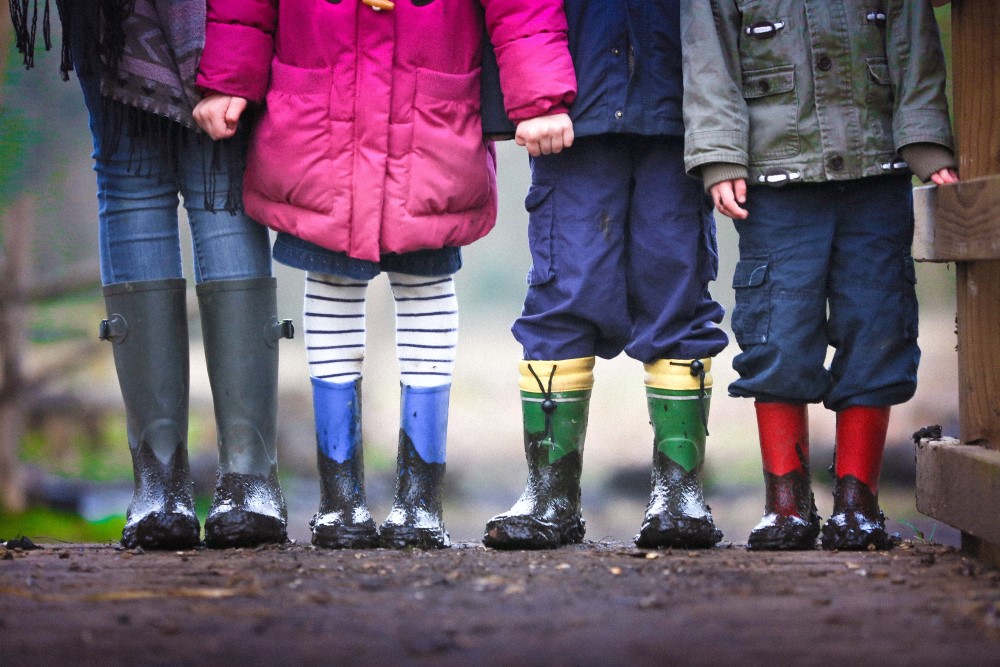In our latest article our Director of Education, Colin Green discusses some key aspects of developing an effective online safety culture in schools today. After many years as a head teacher he provides invaluable insights and guidance on how to enhance the teaching of digital citizenship in primary schools.
The social aspect of online play
Tik Tok!
Insta!
Snapchat!
Fortnite!
COD!
The names ring out in excited chatter across the room. These nine-year olds are no exception. I have witnessed this up and down the country on numerous occasions now. Don’t tell me the Internet is isolating. Don’t tell me we need to get children talking face to face more. These children will gladly chatter for hours on end about their online experience.
The six-year-old grandson is no different. I take him into the office during the school holidays. My colleague’s son is there too. They’ve never met before. They quickly bond. They build Lego together. They chat. They draw on the whiteboard in the upstairs office (don’t tell the boss) and then it’s the iPad. Their chat is just as animated, just different names. YouTube, Roblox, Slither.io.
My conclusion is simple; The joy and shared experience of the Internet is an ever present throughout the primary years.
What exactly are children doing most of online?
I end the discussions of the nine-year olds online experience and we share a few of their conversations. A show of hands indicates the rich variety of online engagement across the spectrum of the social web; viewing, sharing, chatting, friending. They do it all.
Pan European Game Information and social age restrictions
Then the conversation moves on. PEGI first. Many have heard of it, some have not. But most know full-well the age restrictions on the things they’ve been discussing. No PEGI for the social media sites they are using but again they know the limit is supposed to be 13 and older for each of these.
The tone of the conversation has changed. Almost imperceptibly, but it has. I can’t but help notice the glances across the table of two girls who moments earlier were animatedly talking, almost shouting, gleefully sharing their experience of Tik Tok. Eye rolls. They think they know what is coming. They’ve heard it all before. But hopefully my message is more nuanced, subtler, more acceptable possibly. It’s certainly slightly gentler than the teacher who gives the child the hand and states that she’s told them before she doesn’t want to know. I do want to know. I want to engage. I want to make a difference. But how?
How do we engage with a generation that is so locked into this technology?
Early. It must be early. Early intervention is required.
There is a very clear progression of experience. It starts with YouTube, often before they start school. They are viewers, they make few choices. But soon they become more discerning. They know what they like. They choose from the selections offered. They begin to surf. Find information. Use voice activated devices. On to games. They love games. Roblox, Slither.io, Crossy Road and more. And deeper in they go. Fortnite, Call of Duty. Age restrictions matter not. And then they begin to engage. At first random friend requests. Then chat. They chat through games. Headsets no longer uncommon. Onto Social Media. The onward march into the social web is complete for some by upper KS2.
So how do we guide these children through this inexorable progression?
We need them to develop the skills and attitudes that enable them to contribute fully. We need children to have safe spaces in which they can communicate and develop the attitudes that allow them to contribute positively online. We need them to recognize coercive and manipulative behaviours. We need them to be assertive confident users.
We can only do this by giving them access to safe communication tools through which teachers can model, discuss, share, monitor and filter. We need to ensure that the online relationships strand of Relationships Education is not taught in isolation from genuine online activity. We must ensure that the Being Safe strand places first-hand experience first and foremost.
We must ensure that the Caring Friendships and Respectful Relationships extends to incorporate and online component. Children need to understand what a true friend is and how it differs online, they need to understand how to show respect even when they disagree.
Communication is imperative to achieving a solid understanding of online safety
Only through communicating and collaborating online before they are exposed to the world of social media can we embed these skills, share the knowledge and develop understanding. This means children need these experiences at primary school, presented in a coherent, progressive way.
The clock is ticking. Tik-Tok.
More information?
If you would like more information on how to develop an effective online safety culture in your school, attend one of our national online safety briefings. Alternatively, if you would like to hold a session for your pupils, parents, staff or all of the above – get in touch.

 Australia
Australia Canada
Canada LATAM
LATAM New Zealand
New Zealand UAE
UAE United States
United States








